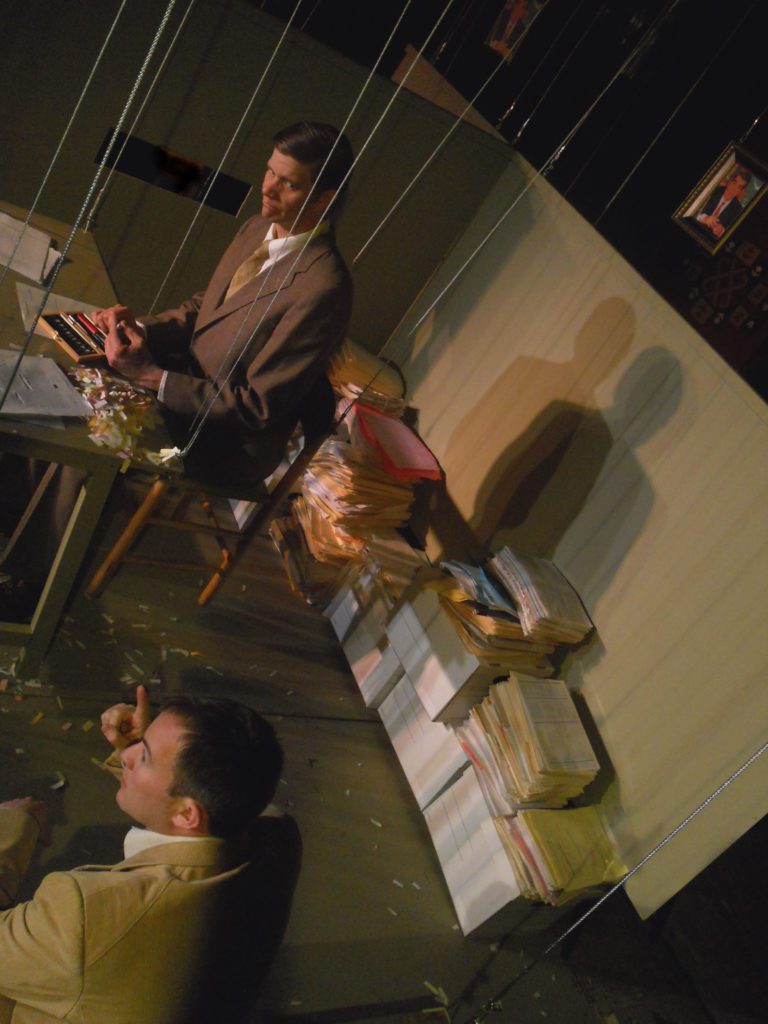Though it may not seem so to the average American, these are desperate times. 57,000 people are disenfranchised in Florida before the 2000 election, yet the follow-up stories appear only in the European press; fact-finding for the investigation of 9-11 is suppressed by the Bush-Cheney junta, yet the Congress passes the Patriot Act and creates a Homeland Security Department to remedy “terrorism”; finally, our “leaders” manufacture evidence to justify the invasion of two countries vital to our un-checked oil consumption, yet opposing nations cave in to our take-over, as long as we promise them some construction contracts and a share of the booty.
While Americans insist that they are free and continue to believe in the “facts” they are served by the ever-consolidating corporate media, any minimally trained political scientist can see that we are treated as nothing more than another glorified banana republic by the ruling families who control our major corporations and the government that runs interference for them. Such observations are also inescapable in Buntport Theatre Company’s current original collaboration, The 30th of Baydak.
Set in modern Turkmenistan, where the supreme ruler willy-nilly changes the names of the months and anything else that suits him, The 30th of Baydak lays bare a society in which the safe route to survival is to keep your head down and don’t ask any questions. Erik Edborg is Yousef, a bureaucrat who cuts out words from government documents. Not knowing what to do with the banished nomenclature, Yousef takes the slips of paper home and puts them in soon-to-be-forgotten boxes, relegating these once-living thoughts to the dustbin of history, much in the same manner as Winston Smith assigned pieces of the historical record to the terminal obscurity of the memory tubes in 1984. Edborg’s downcast gaze, slumping posture, small steps, and mushy compliance makes Yousef the ubiquitous Orwellian yes-man that is the glue of totalitarian societies.
Yousef’s is a shifting world where everything literally hangs by a thread: the entire set, including desks, chairs, cubicle dividers, beds, dresser, and walkways, is suspended from the ceiling by airline cable.
Yousef’s supervisor, Ogul, long-ago having been stripped of her own keywords, is, in Hannah Duggan’s characterization, an impossible, unending string of clichés and platitudes, who strews a surfeit of paperwork everywhere she walks.
In the cube behind Yousef sits Farzad, the only office worker who turns away from the omnipresent posters and pictures of the supreme ruler. Evan Weissman draws Farzad as pesky, insistent naysayer, who, when no one else is around, raises his fist, questions government policy, and attempts to goad Yousef into joining his revolutionary cell.
Into this bleak existence comes Meret, who takes over the long-abandoned cube next to Yousef and attempts to break through his insularity. Sunny and curious, Erin Rollman’s Meret engages Yousef in a gradually expanding dialogue that briefly seems to offer some hope of expression for his long suppressed feelings.
Yousef’s only friend is his imaginary roommate Ismail, a camel dressed as a man, who appears one evening and begins to question Yousef’s routine. Mixing patient, fatherly advice with subtle mask positionings, Brian Colonna becomes the deus ex machina that provides Yousef with a potential path to redemption. Ismail tells Yousef, “You have a choice how you act.”
In The 30th of Baydak, the noble ensemble of Buntport once again creates a strangely familiar yet magical world that asks difficult questions about our complacent acceptance of business as usual. It runs through June 15th.
-Bob Bows, June 2003, coloradodrama.com
